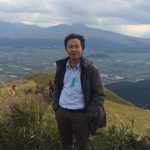Event Recording:
The Mekong Delta, Vietnam's "rice bowl" and a globally significant biodiversity hotspot, is on the front line of climate change.
Rising sea levels, saltwater intrusion, and extreme weather events pose an existential threat to its ecosystems and the livelihoods of its 20 million inhabitants. Aquaculture, a cornerstone of the region's economy and food supply, is particularly vulnerable to these changes.
This presentation will explore the evolution of climate adaptation strategies in the Delta's aquaculture sector. Drawing on a unique longitudinal dataset, Dr Dao Minh Hai will compare comprehensive surveys of 200 shrimp farms conducted in 2011 and 2024. This decade-long analysis reveals critical trends in how farming systems, environmental impacts, and farmer decision-making have shifted in response to mounting climate pressures.
The talk will examine the effectiveness of key interventions, from integrated mangrove-shrimp and rotational rice-shrimp systems to advances in genetic selective breeding programs for enhanced salinity tolerance in species like striped catfish. By analysing what has worked and what has not, the talk will distil key lessons for building resilient aquatic food systems. These insights are essential for developing scientifically sound and practically implementable policies to safeguard food security in the Mekong Delta and other vulnerable coastal regions worldwide.

Dr Dao Minh Hai
Lecturer, College of Aquaculture and Fisheries, Can Tho University
Dao Minh Hai is a lecturer of the Faculty of Aquaculture Technology, College of Aquaculture and Fisheries, Can Tho University, where he teaches several majors related to aquatic science, specializing in fish genetics, selective breeding, and sustainable aquaculture practices in the Mekong Delta. He got a Master's Degree at Kyushu University, Japan, in 2016 under the JDS Scholarship. Then, he received his Ph.D. Degree in fish genetics (2022) at the University of Liege, Belgium, under funding of ARES, Belgium. In addition to teaching, he participates in several international and national projects. His research interests lie in the sustainable improvement of production, health, welfare, and resilience traits, as well as the effects of climate change and adaptation in aquaculture. His pioneering research on selective breeding for salinity tolerance in striped catfish directly addresses one of the most pressing challenges for global food security: adapting food production systems to climate change impacts. Currently, he is involved in several projects cooperating with international organizations such as JICA (JAPAN), IDRC (Canada), NORAD (Norway), and ARES (Belgium).
Keep in touch
If you found this page useful, sign up to our monthly digest of the latest news and events
Subscribe